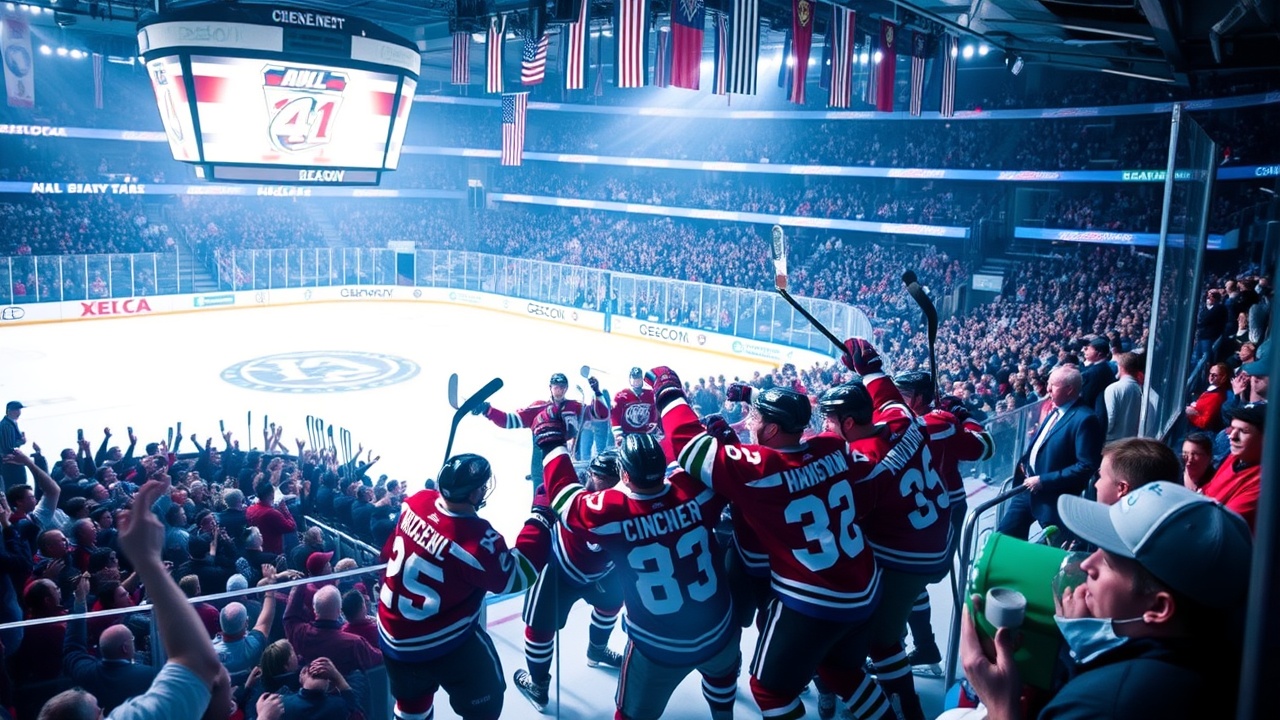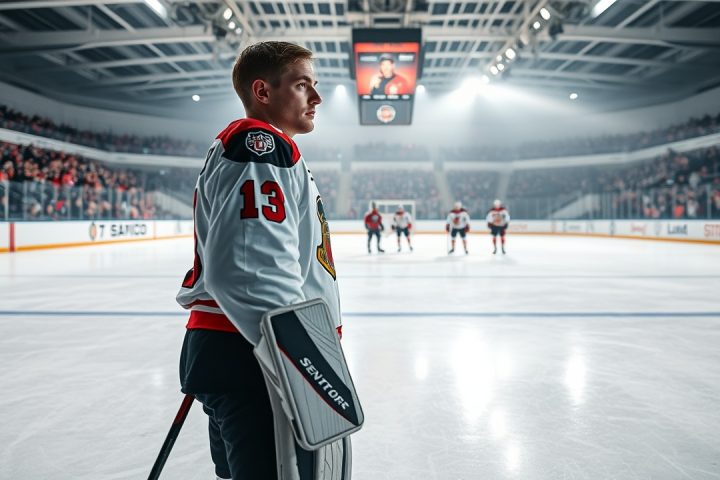Ben Stafford’s Unexpected Journey in Sports
Ben Stafford’s journey in sports took an unexpected but rewarding turn. Originally drafted as a dynamic two-way center at Yale University, Stafford transitioned to minor-league hockey after his college career. With aspirations of entering military medicine, he briefly pursued medical school but ultimately redirected his goals, enlisting in the U.S. Marine Corps and serving overseas in Iraq and Kuwait. Now, he leads a renewable energy firm in New York City, but his hockey legacy includes a remarkable season two decades ago with the American Hockey League (AHL) champions, the Philadelphia Phantoms.
A Challenging Season Ahead
Stafford, then 26, recalled feeling the pressure going into the 2004-05 season, aware it might be his final shot at an NHL career. “I was just scratching and clawing, anything to get a cup of coffee in the show,” he shared. His previous season saw him tally a modest 12 goals across 73 games for the Phantoms. However, the AHL was unusually competitive during the NHL lockout that year, which opened the floodgates for NHL-ready talent to dominate the minors.
The Talent-Rich AHL
The AHL burst with talent that year, leading to what many see as the league’s most talent-rich season ever. Stars like Jason Spezza (Binghamton Senators) and Eric Staal (Lowell Lock Monsters), both top scorers, were just a few of the incredible prospects in the league. The Phantoms—other notable players included Patrick Sharp, Jeff Carter, and Mike Richards—boasted a championship-winning roster that merged youthful energy with veteran experience.
Despite their depth, the Phantoms did not produce any players in the league’s top scoring charts during the regular season. Instead, they thrived on their cohesive teamwork, finishing with a stellar record of 48 wins, 25 losses, and 7 ties. Coach John Stevens recognized the unique team dynamic that fueled their success:
“We didn’t have one guy carrying the load. We were more of a team-team.”
The Path to the Championship
Their path to the championship was characterized by a mix of young talent and seasoned professionals. The defense was anchored by Dennis Seidenberg and Joni Pitkanen, each of whom went on to have significant NHL careers. In goal, Antero Niittymaki took the bulk of the workload, eventually playing in the NHL for several teams afterwards. Altogether, the Phantoms reigned over competition, finishing the regular season strong and stacking the roster with toughness—evidenced by their fourth-place finish in the league for penalty minutes.
The Phantoms’ season began with a hiccup, losing their first two games. However, they stormed back with a record-breaking 17-game winning streak, fueled by consistent performances and effective goaltending. The NHL lockout was a constant specter over the AHL, as players remained hopeful for a return to the NHL. Despite the distractions, the Phantoms committed to their playoff push. With the arrival of rising stars Jeff Carter and Mike Richards from the junior ranks late in the season, the team was bolstered, able to fend off opponents in the playoffs.
The Finals and a Surprising Hero
As they faced the Norfolk Admirals, Wilkes-Barre/Scranton Penguins, and Providence Bruins, the Phantoms navigated each round expertly, culminating in their Calder Cup Finals matchup against the Chicago Wolves. Remarkably, despite relocating to the Philadelphia Flyers’ hometown arena for the finals, the Phantoms had the support of an increased fan base, with even AHL attendance records being shattered. On June 10, 2005, before a sold-out crowd, the Phantoms clinched the Calder Cup title with a resounding victory, 5-2.
In a surprising twist, it was Stafford, not one of the higher-profile players like Sharp or Carter, who scored the decisive game-winning goal in the final match.
“It was just incredible to be a part of that moment, to help the team win the championship,”
he reflected.
Enduring Legacy
Stafford’s contribution exemplified the essence of teamwork that defined the Phantoms’ magical season. The current recall of those fierce games, powerful camaraderie, and the spirit of a hard-fought championship continue to resonate not just in hockey history but in the personal narratives of each player involved.




